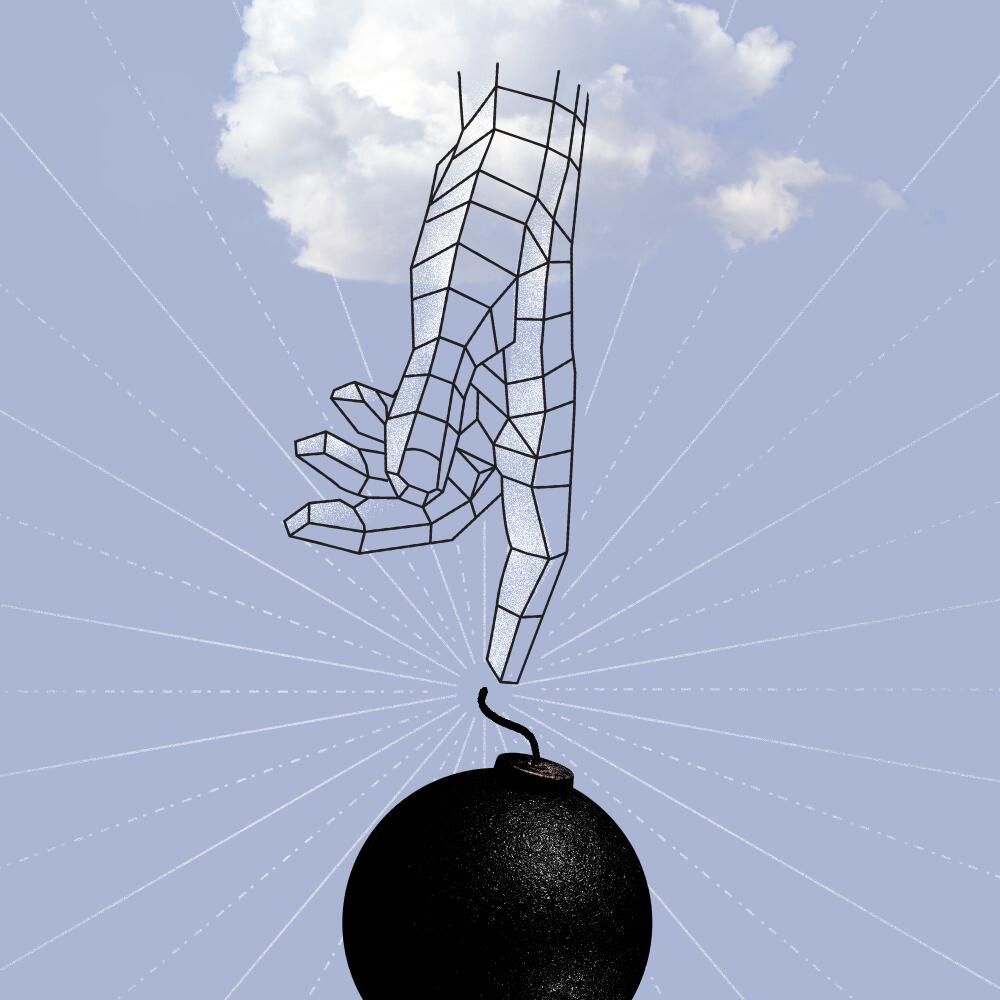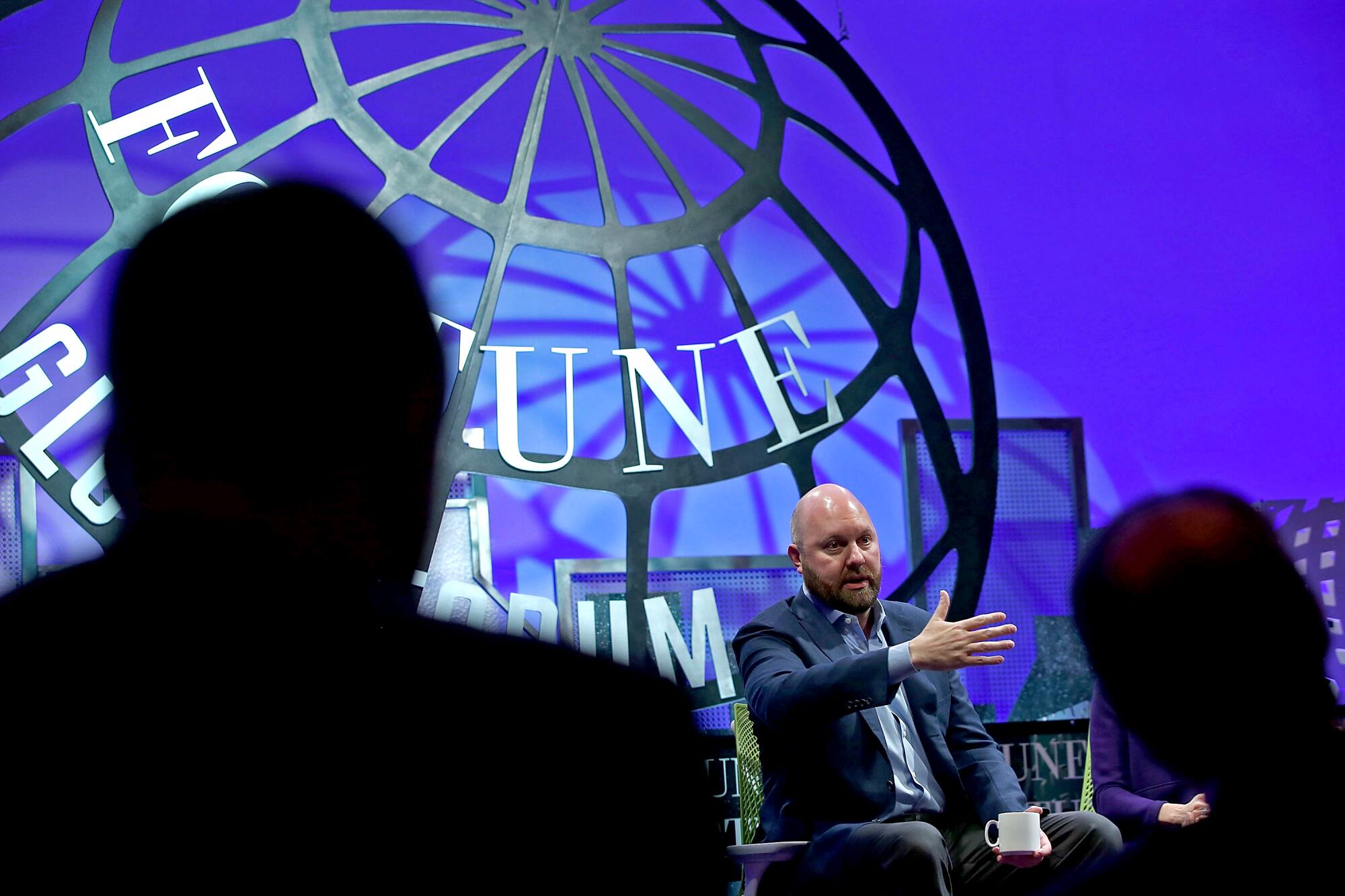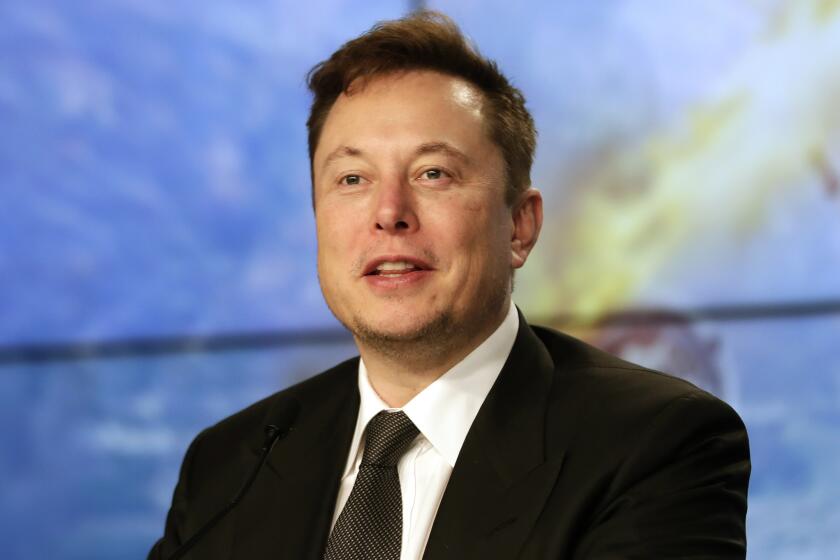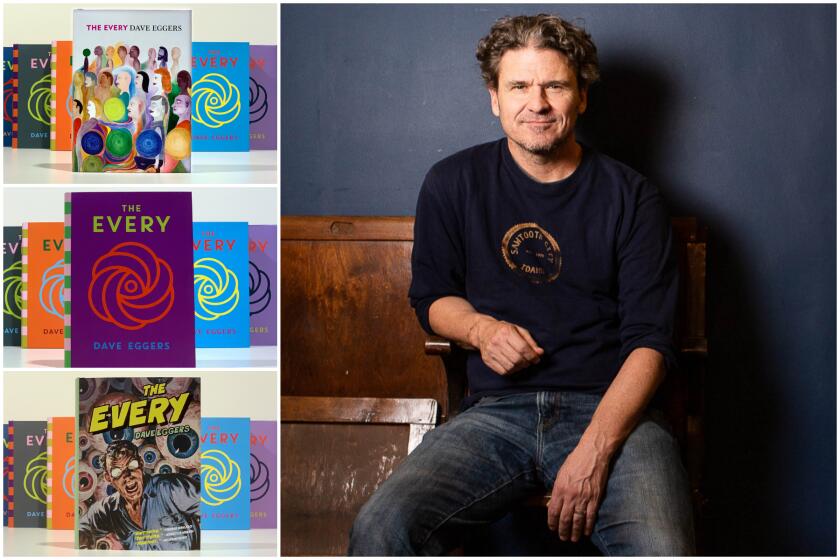
On the Shelf
Two versions of the tech future
Wrong Way
By Joanne McNeil
MCD, 288 pages, $18
The Techno-Optimist Manifesto
By Marc Andreessen
If you buy books linked on our site, The Times may earn a commission from Bookshop.org, whose fees support independent bookstores.
You could be forgiven for thinking the robots have taken over already.
Your boss’ boss can’t stop talking about ChatGPT. The world’s most famous artificial intelligence developer, OpenAI CEO Sam Altman, is apparently unfireable by his human handlers. Long-term thinkers have given us a couple of options about how to consider AI’s future, though in the short term, they don’t seem like options at all.
Option A: The marketplace could develop AI capable of civilization-scale tasks like interplanetary colonization. We must build AI that serves humanity!
Option B: The marketplace could develop AI capable of civilization-scale tasks like enslaving — or exterminating — people. We must build AI that serves humanity!
The internal shuffle is likely to remain mysterious, but the effects will be painfully public as the AI industry orients around profit instead of people.
AI might be new, but some philosophies of its inevitability are a bit older and don’t like revealing their age. Many people once believed it was their job to help usher human history toward its scientifically rational destination. We called them Marxists. Today, it’s the venture capitalists with the accelerationist manifestos, the accusations of false consciousness and the impatience with the bourgeois sentimentalists (novelists and newspaper journalists, for example) who stand in the future’s way.
The widely discussed “Techno-Optimist Manifesto,” from prominent tech venture capitalist Marc Andreessen, arrived recently bearing a sunny 1950s title, but also the unmistakable gasoline stink of anger.
“We are being lied to,” Andreessen writes. “We are told that technology takes our jobs, reduces our wages, increases inequality, threatens our health, ruins the environment, degrades our society, corrupts our children, impairs our humanity, threatens our future, and is ever on the verge of ruining everything.”

Techno-Optimists’ enemies, Andreessen continues, want us to denounce our “birthright” — the human intelligence that allows us to conquer worlds — because these haters are suffering from “a witches’ brew of resentment, bitterness, and rage that is causing them to hold mistaken values, values that are damaging to both themselves and the people they care about.”
Andreessen lists the opponents of progress: ESG investing, stakeholder capitalism, trust and safety teams, socialists, “Alexandre Kojeve’s Universal and Homogeneous State,” credentialed experts and bureaucrats.
If this list sounds random, it isn’t. It’s the combined entropic social muck deposited by civil servants, PTA members, senators, trade unionists, professors and other irritating middle-class intellectuals who perpetrate the going concern we know as modern democracy.
Nietzsche-huggers have always been irritated by the world’s meddling democrats, who tend to think a well-regulated market economy is a safer plastic-ball pit for our would-be Übermenschen. Better that Elon Musk make electric cars or wreck a social media company than command some armored divisions.
Walter Isaacson’s biography of Elon Musk distilled, from fierce mood swings and Ukraine intervention to his ‘dumb’ Pelosi tweet and that time he had the 405 repainted.
Gliding between the lines of Andreessen’s manifesto — posted to his venture capital firm’s website, with an appended SEC disclaimer that “past performance is not indicative of future results” — is a ghost story about class warfare. The fight between workers and owners is dead, slain by material abundance and the modern welfare state (which needs to be held in check: “We believe a Universal Basic Income would turn people into zoo animals to be farmed by the state”). Rising in its place: an intergenerational war in which future humans are enslaved by the regressive decisions we make today.
“What world are we building for our children and their children, and their children?” Andreessen writes. “A world of fear, guilt, and resentment? Or a world of ambition, abundance, and adventure?”
…
If the Techno-Optimists win, how will their boundless destiny feel? Longtime tech writer Joanne McNeil’s satirical and sentimental debut novel, “Wrong Way,” flips the org chart for the gig worker’s view.
In the near future, Teresa is a middle-aged Massachusetts native without a career, a steady paycheck or a corporate teleology. She temps; she comes and goes. “Like an actor’s stand-in, Teresa typically filled a gap left by someone else. Parental leave was the most common reason. At every place, they’d make the same joke on her first day: ‘You’re the new Jessica!’” She is the slack in the labor market, barely even the protagonist of her own story.
The creeping alien force constantly wrapping its tentacles around the dialogue in “Wrong Way” is the inoffensively postconservative, universalist rhetoric of contemporary business development. (Andreessen notwithstanding, the increasingly left-leaning American managerial class doesn’t tend to quote Nietzsche at their subordinates.)
Sarah Rose Etter spent a few demoralizing years in Silicon Valley tech. It paid off with ‘Ripe,’ a surreal new novel that just might make her a household name.
Teresa’s next gig is for AllOver, a hegemonic combination of Uber, Google, Meta and Amazon whose mission “is to connect customers and entertainment and service providers, to empower businesses and content creators to maximize their success, and to make person-to-person experiences and exchanges universally accessible, progressive and equitable.” Cue the unconvincing tribal land acknowledgment. Corporate onboarding sometimes really does make you wish Zarathustra would descend and bellow that God is dead.
AllOver is launching a new driverless car fleet but still needs drivers like Teresa; to say why would spoil the demented reveal in “Wrong Way.” Teresa finds alienation, satisfaction, anxiety — but ultimately a home in this oddest of odd jobs. It’s a steady paycheck for an interesting company, whose founder’s own version of Techno-Optimism is called the “Holistic Apex,” a “working philosophy of humanism for collaboratively superb achievement.”


Joanne McNeil’s first novel, “Wrong Way,” envisions further developments in the AI gig economy. (MCD x FSG / Lizzy Johnston)
“As democratic institutions fail and the social safety net crumbles under austerity measures, I put forth to the public this, an omni-solution, the CR,” announces AllOver’s CEO, who goes by the Pynchonesque name Falconer Guidry. “A green car, a privacy machine, an end to misinformation, a pledge for justice, rights, and a world in which everyone is your neighbor, your friend, your brother.”
In fiction and in life, the Techno-Optimist might be sincere in their statement of first principles. The rest of us hear advertising.
Although the dystopian features of McNeil’s plot might invite comparisons to blunt-force technoskeptical commentaries like 2013’s “The Circle” by Dave Eggers, “Wrong Way” lands a little more squarely in the literary tradition of sentimental realism. McNeil’s previous nonfiction book about tech, “Lurking: How a Person Became a User,” certainly fell on the critical side, arguing that writers could have done more in the internet’s early years to guide the tech industry toward less exploitative tendencies. “Instead,” she wrote, “the internet haters of the highbrow persuasion flaunted their ignorance.”
But in “Wrong Way,” it’s the feeling novelist, not the thinking pamphleteer, who’s a little better tuned to explain why all this Techno-Optimism can’t help Teresa achieve escape velocity from the accreted burdens of her life: the old jobs, the old boyfriends, the familiar streets and former storefronts of her youth.
The San Francisco impresario and techno-skeptic delves into the Amazon animus that drove his new novel, ‘The Every,’ a sequel to dystopia ‘The Circle.’
“Finally she understands why it is harder to get a job as you get older: it is not a lack of motivation, but experience of the sort that a résumé never reveals,” Teresa thinks. “She will never walk into a job interview with the look of someone hopeful and innocent, who believes the doors to the future are open to everyone and just.”
It’s too late for Teresa to be transformed by tech. She’s already been transformed by work. The Techno-Optimists want to win the war for the future, but so many of us are busy losing wars with the ghosts of the past. Who we are, battling who we have been — it’s a battle to the death. The sublime torment of missed opportunities, of lost time remembered, is how we know we’re human.
More to Read
Sign up for our Book Club newsletter
Get the latest news, events and more from the Los Angeles Times Book Club, and help us get L.A. reading and talking.
You may occasionally receive promotional content from the Los Angeles Times.











